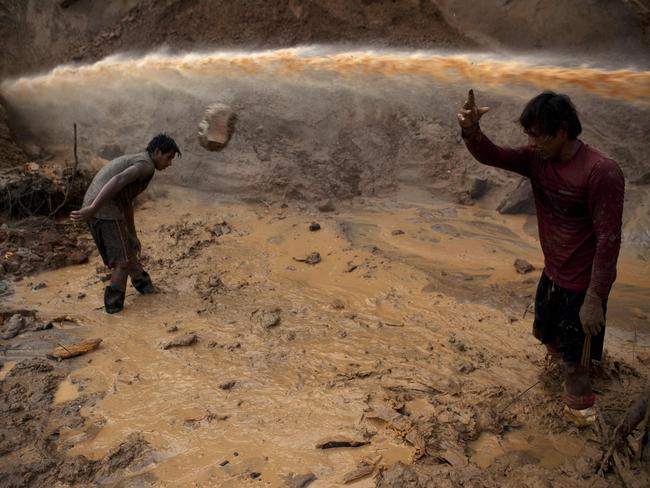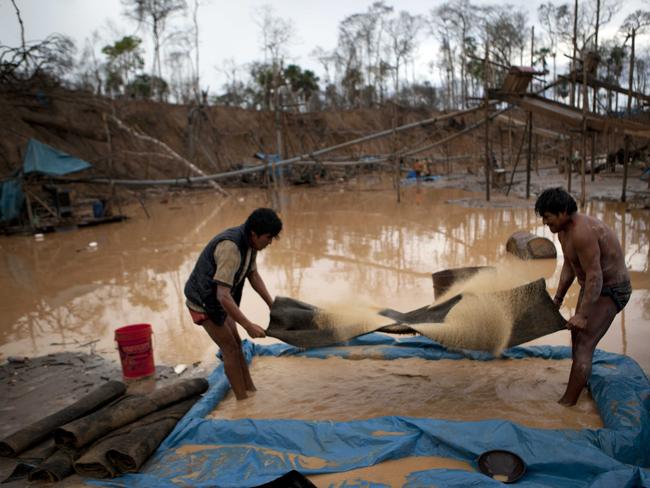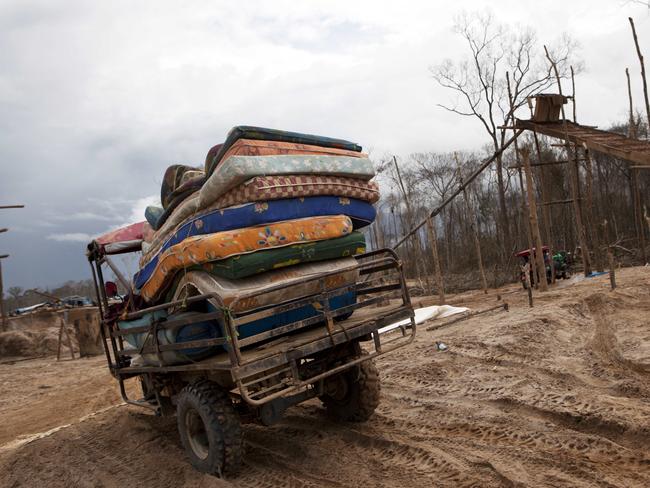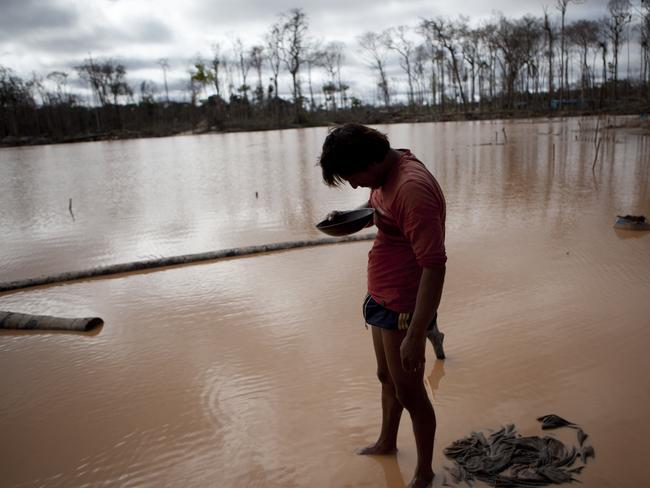Pictures show the incredibly tough life of illegal miners in the Madre de Dios region of Peru
28-HOUR shifts, toxic chemicals and crushing machinery are just some of the hazards workers face at illegal mines in Peru. These powerful pictures show their reality.

THEY sweat through 28-hour shifts in the malarial jungle of the Madre de Dios region of south-eastern Peru, braving the perils of collapsing earth and limb-crushing machinery to come up with a few grams of gold.
Most illegal miners hail from impoverished highlands communities and even here barely earn subsistence wages. They chew coca leaf, a mild stimulant, to ward off the fatigue that can lead to fatal accidents.


Life is cheap in the mining camps. Deaths go unrecorded and the mercury miners use to bind the gold compounds the risks. Tons of mercury dumped into the environment poisons the food chain for society at large, starting with the miners and their families.
Peru's government wants to end all that, rooting out the estimated 20,000 wildcat miners whose toil has left a huge scar of denuded Amazon rainforest known as La Pampa, an area nearly three times the size of Washington, D.C.


Peru's government declared all informal mining illegal on April 19 and began a crackdown. It raided the older boomtown of Huepetuhe, dynamiting backhoes, trucks and generators. Troops even destroyed the outboard motors of canoes used to ferry mining equipment across the Inambari river.


In La Pampa, miners fear they are next. Their gasoline supplies have already been choked off by authorities.
Some buried their equipment after the crackdown began only to unearth it days later when no raid came. But come it eventually will, the government says, because there no legal mining concessions exist in La Pampa.


The government's point man on eradicating illegal mining, Daniel Urresti, says the real criminals aren't the miners, but an estimated 50 people they work for, who own the illegal machinery and buy the gold.
People in La Pampa say that if the authorities eradicate their livelihood, it must make good on promises to provide employment alternatives.


“Motors are my life. I'm a mechanic. If the government comes and destroys them, then from what will I and my family live?” said Leoncio Condori.
The 51-year-old, a native of the Andes city of Cuzco, has been fixing motors in La Pampa ever since artisanal gold miners began carving out lawless, ramshackle settlements from Amazon jungle there in 2008.





